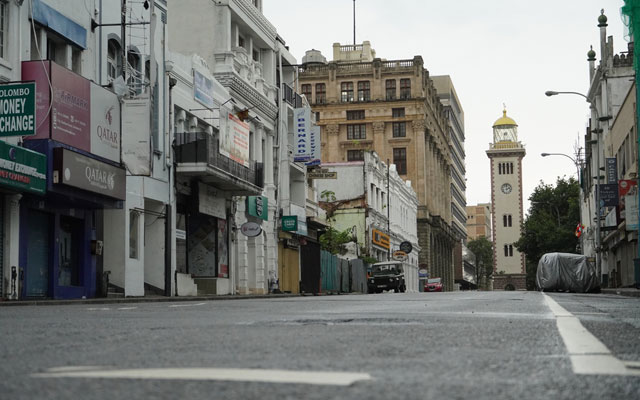Sri Lanka’s hotel operators, whose businesses have been left crippled by the Covid-19 pandemic, will seek financial relief during a crucial meeting with representatives from the country’s main Central Bank on Tuesday (June 29).
“We are hoping for some relief from the Central Bank and the government to stay afloat as our financial obligations have gone beyond crisis levels,” said Sanath Ukwatte, president of The Hotels Association of Sri Lanka.

Among the proposed financial assistance to be discussed at Tuesday’s meeting is a three-year waiver of interest on loans; extension of the loan moratorium which ends in September; and a wage support scheme for hotel staff.
“We don’t have cash flows but we have to pay salaries and maintain the infrastructure,” Ukwatte said.
Despite inbound travel demand for Sri Lanka, the industry is not confident of the forthcoming winter season because the country is on the “red list” of destinations. Under the new traffic lights system for destinations, green countries allow for quarantine-free travel, amber countries require quarantine on return, while red-list destinations are no-go areas.
Ukwatte, who is also chairman of the Mount Lavinia Hotel, a 210-year-old colonial heritage hotel, said the government needs to protect the struggling tourism industry which has three million dependents out of Sri Lanka’s 21 million population. “The tourism footprint in the economy is greater than any other sector, and for this reason, the government needs to protect it before it collapses,” he said.
Since Sri Lanka reopened her borders to foreign holidaymakers on January 21, 2021 – with a temporary 10-day shutdown in May – tourist arrivals to the country have been low, with just 18,000 arrivals from January to mid-June 2021, according to official figures.
Currently, there are 116 ‘safe and certified’ hotels for tourists, while another 20 hotels have been transformed into intermediate care centres for local, suspected Covid-19 patients and a further 48 hotels into quarantine centres for Sri Lankans returning from abroad.
To supplement their income, most hotels in the capital Colombo are offering food deliveries using ride-hailing apps like Uber Food.
One such hotel is Jetwing Symphony Hotels. Chairman Hiran Cooray, however, said that while offering meal deliveries “keep staff occupied and kitchens clean”, the revenue derived from it is insufficient to cover wages.
He added that Sri Lanka’s tourism will only return to its former pre-pandemic glory if the country vaccinates 60 per cent of its population.
M. Shanthikumar, director at the Ramada Colombo, agreed that the food takeaway business is only to keep hotel staff occupied, but not enough to pay salaries and operational bills. He said restaurants and bars in hotel premises remain closed, as per existing health guidelines, and thus, a major component of their revenue is gone.
As of Saturday (June 27), Sri Lanka reported 251,751 Covid-19 cases and 2,905 deaths.




















